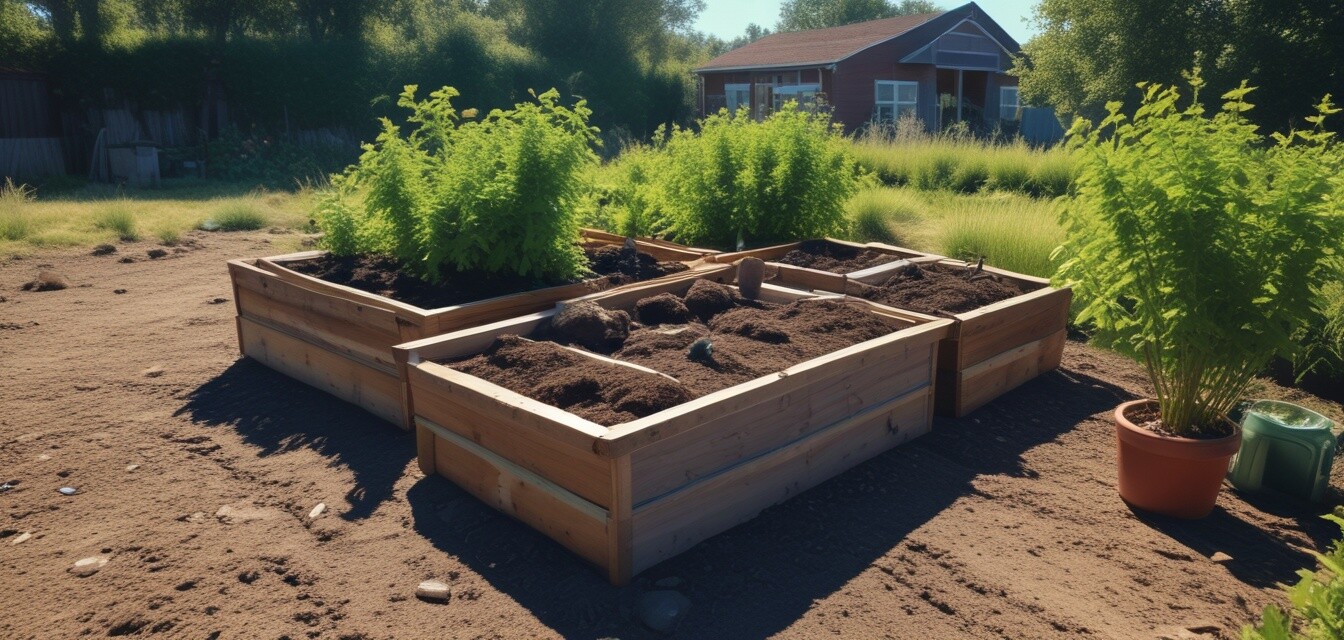
The Move towards Zero-Waste Gardening
- Zero-waste gardening focuses on creating a sustainable and environmentally friendly gardening practice.
- Implementing composting, natural pest management, and using native plants significantly reduce waste.
- Adopting these practices benefits both personal gardens and the broader ecosystem.
- Incorporating eco-friendly products and innovative irrigation systems can enhance garden efficiency.
- Stay updated with gardening trends to continuously improve your sustainable practices.
As the world shifts towards more environmentally friendly practices, zero-waste gardening is becoming a popular trend among gardening enthusiasts and eco-conscious communities alike. This approach not only helps in reducing waste but also contributes significantly to sustainability and minimal environmental impact. Let's explore this vital movement and its benefits.
Understanding Zero-Waste Gardening
Zero-waste gardening is a philosophy aimed at reducing the overall waste produced by gardening activities. It focuses on using every part of the plant and recycling organic materials to create a closed-loop system within your garden. This practice aligns well with sustainable living, offering solutions that benefit both gardeners and the environment.
Key Principles of Zero-Waste Gardening
- Composting: Utilizing kitchen scraps and garden waste to create nutrient-rich compost.
- Native Plant Selection: Choosing plants that thrive in your local area, reducing the need for artificial fertilizers and extensive watering.
- Crop Rotation: Changing planting locations yearly to prevent soil depletion and pest infestations.
- Natural Pest Management: Employing beneficial insects and organic solutions to manage pests without chemicals.
The Environmental Impact of Zero-Waste Gardening
Adopting zero-waste gardening practices not only minimizes waste but also has far-reaching impacts on the environment:
| Impact | Description |
|---|---|
| Reduction in Landfill Waste | Using organic materials for compost reduces what ends up in landfills, lowering greenhouse gas emissions. |
| Conservation of Resources | Natives and well-adapted plants require less water and are more resistant to diseases, decreasing resource use. |
| Enhanced Biodiversity | Encouraging various plant and animal species leads to a healthier ecosystem. |
| Improved Soil Health | Composting enriches the soil, leading to improved growth and reduced need for chemical fertilizers. |
Challenges and Solutions
While zero-waste gardening has numerous benefits, there are challenges involved in its implementation:
Pros
- Reduces waste and promotes sustainability.
- Enhances soil health and plant growth.
- Supports local ecosystems and encourages biodiversity.
- Saves money on fertilizers and soil amendments.
Cons
- Initial setup can be time-consuming.
- Requires knowledge and effort to maintain properly.
- Some may struggle with pest management without chemicals.
Getting Started with Zero-Waste Gardening
Transitioning to a zero-waste garden doesn’t have to be overwhelming. Here are practical steps to help you get started:
Beginner's Tips
- Start with a compost bin to recycle kitchen and garden scraps.
- Research native plants that can thrive in your region.
- Plan your garden layout for crop rotation.
- Incorporate organic pest control methods, such as companion planting.
- Stay informed about eco-friendly gardening tools and products.
Keep Educating Yourself
One of the best ways to stay at the forefront of the zero-waste gardening movement is to continually educate yourself about the latest practices and products. Check out our News and Trends section for more information about innovative gardening techniques and sustainable practices.
Conclusion
Zero-waste gardening represents a significant step forward in personal sustainability and environmental responsibility. By adopting these practices, you not only help the planet but also create a thriving, beautiful garden. As you make the transition to a greener gardening approach, remember that every action counts in making our world a cleaner, healthier place.
For more insights into sustainable gardening, check our Eco-Friendly Fertilizers and Composting & Waste Management categories for top-tier products that contribute to a healthier gardening practice.